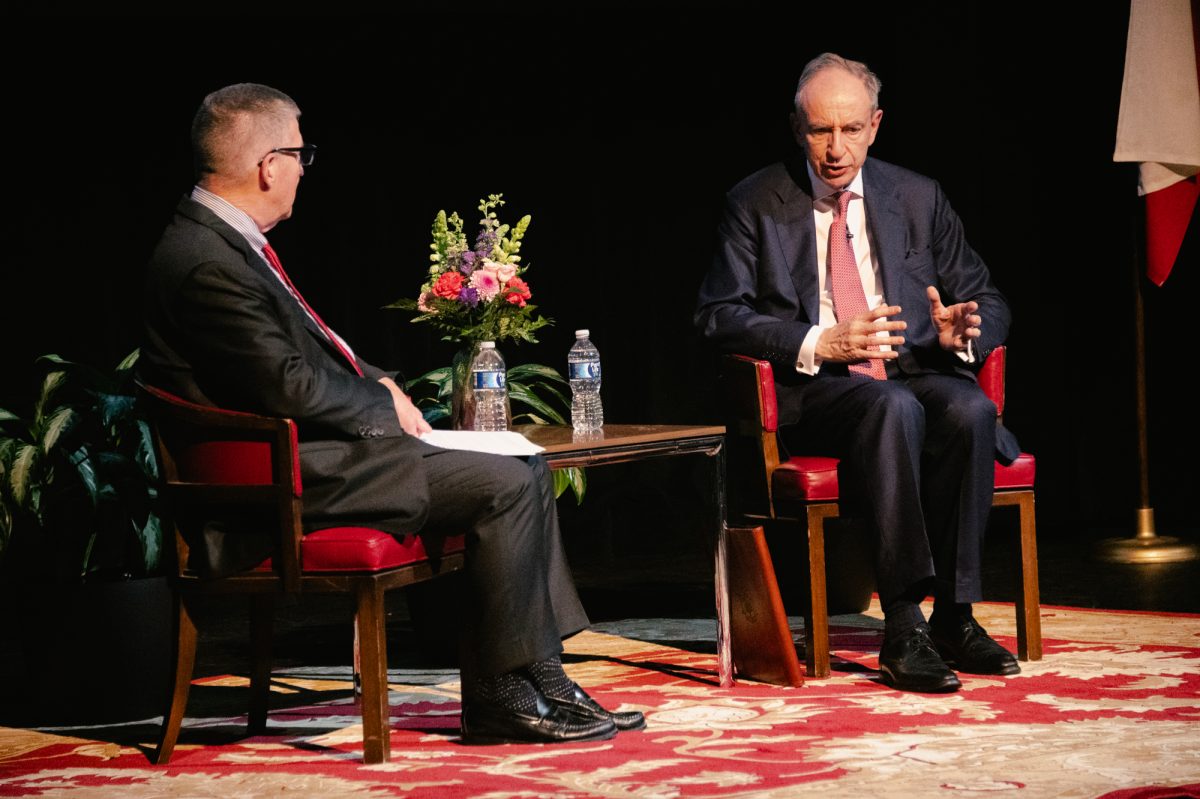Technology will empower solutions to some of the greatest humanitarian and political issues in the next decade, according to Jared Cohen, a Google executive who spoke at the Bush School Friday night.
Cohen is the founder and director of Google Ideas, a think-tank within Google that applies technological solutions to humanitarian issues such as freedom of expression, violent extremism and poor governance. He has served as special advisor to former Secretaries of State Condoleeza Rice and Hillary Clinton, and currently sits as an adjunct senior fellow on the Council of Foreign Relations.
Fred McClure, chief executive officer of the George Bush Presidential Library Foundation, introduced Cohen to a crowd of guests that included students and Former President George H. W. Bush.
“[Jared Cohen] explores how technology can enable people to confront threats in the face of conflict, instability and repression,” McClure said.
Cohen’s speech surveyed the current and potential uses of technology concerning these humanitarian issues. He said he used his years of policy experience to analyze their effectiveness, something he said is an important question in a digitally connected world.
“Since the year 2000 we have gone from roughly 361 million people connected to the internet to well over 2.5 billion,” Cohen said. “As the entire globe becomes connected, what happens in one country is only going to become more and more relevant to us.”
To Cohen and his team at Google Ideas, this new era of digital power means more power to the everyman.
“Technology is transforming the individual lives of some of the most disenfranchised and abused demographics in the entire world,” Cohen said.
Cohen said the influence of the internet can reach to underdeveloped countries that seem to lack the basic infrastructure to support the adaptation of technological solutions.
“There is a fundamental observation that I have made, which is people do more with less,” Cohen said. “There is no greater drive of innovation than necessity, and the more impoverished and lacking in infrastructure a society is, the more likely they are to teach us how to use the devices that we think we understand.”
In the next decade, Cohen said he foresees technology making greater progress for a number of issues. He predicted pills that can be swallowed and immediately diagnose illnesses, education apps that can simplify and deepen the learning process and conversation programs that can translate hundreds of languages in real time.
Cohen said the increase in technology use has also empowered people with negative intentions. The anonymity granted to everyone on the internet has made efforts to track down militants and end terrorist propaganda difficult in the war on terror. The Islamic State of Iraq and Syria was one example Cohen used, saying the group has used the internet to recruit fighters from the Europe and United States.
Scott Holt, supply chain management junior, found his discussion of this juxtaposition particularly effective.
“It was interesting to hear him talk about ISIS, and how they have been able to harness technology and how that has been different from any terrorist campaign in the past,” Holt said.
Cohen said his optimistic opinion of technology is not deterred by these facts, and said technology has a way of surprising people.
“We’re living in a world now where the things that used to be seen as science fiction are now within our grasp and reality,” Cohen said.
Google executive speaks on future of internet, global connectivity
March 6, 2015
0
Donate to The Battalion
$810
$3500
Contributed
Our Goal
Your donation will support the student journalists of Texas A&M University - College Station. Your contribution will allow us to purchase equipment and cover our annual website hosting costs, in addition to paying freelance staffers for their work, travel costs for coverage and more!
More to Discover









